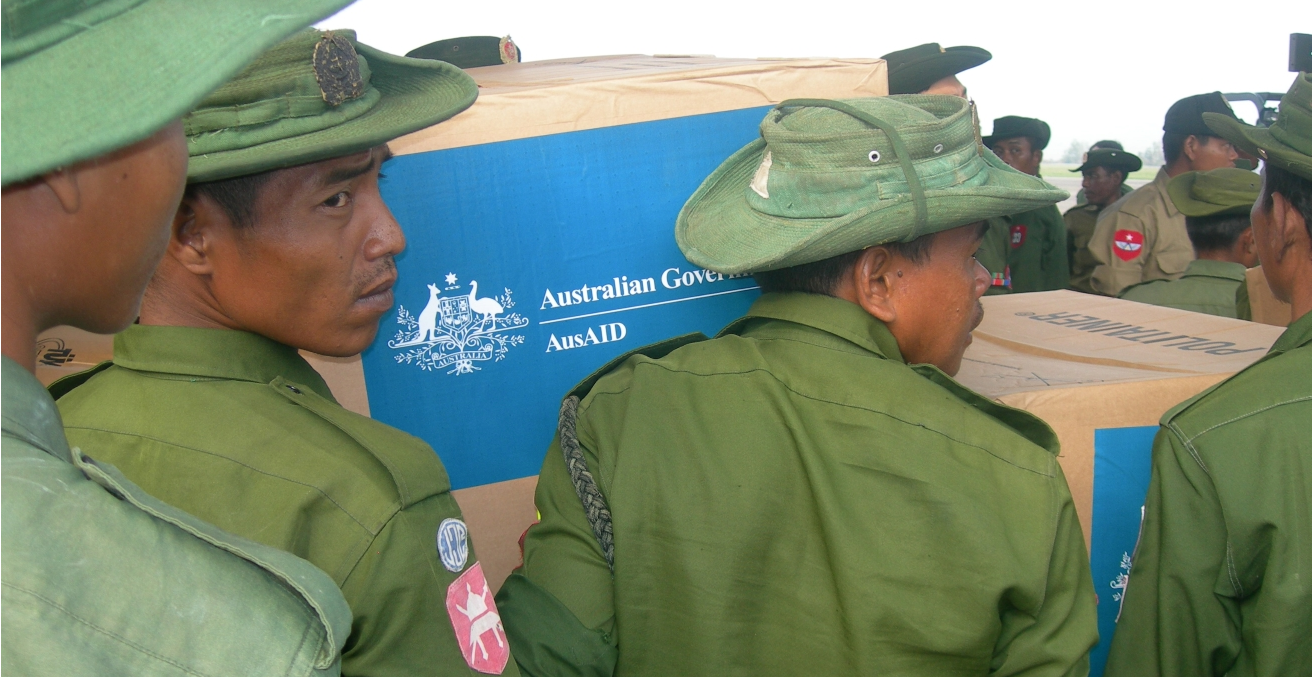The Primacy of Domestic Politics and the Reproduction of Poverty and Insecurity

The foundational assumption that poverty and insecurity in the Global South are largely produced by local rather than relational dynamics is wrong. Unless it is overturned, poverty and insecurity will remain prevalent in Southern states.
The idea that some states are “fragile” because they lack the capacity to provide basic services is integral to mainstream security and development policy doctrine in many Northern states. The dominant discourse about “fragile states” (as articulated by major international development agencies, multilateral organisations, the United Nations, think tanks, and elite university research centres) calls for external actors to help build the capacity of domestic governance institutions in the global South as a way of overcoming poverty and insecurity. It frames the pathway to greater peace and prosperity within these states as primarily, if not entirely, domestically constituted, with outside actors playing a facilitative and seemingly innocuous role. By focusing on the internal capacity of so-called fragile states, international development and peace/state-building agencies assume that poverty and insecurity are largely the product of domestic particularities, typically overlooking the international context within which these states exist. Moreover, they assume that these particularities can be meaningfully separated from international/global power relations, and that solutions to poverty and insecurity can be pursued largely, or even solely, within the borders of the state/s in question.
The local context turn in international development
The evident failure of international interventions to catalyse systemic change in “fragile” states has prompted soul searching within some development agencies. In response, a number of the leading agencies determined (rightly) that they had been trying to impose solutions on Southern states that were largely based on external, rather than local, priorities. Their conclusion was that they needed to invest in acquiring granular knowledge of local power structures and asymmetries, as these were far more important to the prospects for development than was the technical expertise of international donor agencies.
This turn to prioritising local context was celebrated by many (myself included) who believed that development and peace/state-building interventions had prioritised too heavily the bureaucratic imperatives of interveners over the specific needs of recipients. DFAT has been one of the strongest institutional champions of efforts to recognise the primacy domestic politics in the places they work, and is active in efforts to implement the “Thinking and Working Politically” agenda in many of the areas that it works. Other key actors include the United Kingdom’s Department of International Affairs (DFID), the United States Agency for International Development (USAID), the Development Assistance Committee (DAC) of the Organisation for Economic Co-operation and Development (OECD), and the World Bank.
Advocates of “bringing politics back in,” “going local,” or “localizing development” interventions all emphasise that international development and peace/state-building agencies must be driven by local imperatives rather than those of the intervening agency. To achieve this, intervenors must develop a deep understanding of the local political context they will engage with. However, while many of the major agencies in these fields now emphasise local knowledge and ownership in their funding models, attempts to operationalise what I refer to here as “local context-based approaches” have not (or at least not yet) led to systematic improvements in development and peace/state-building outcomes. There are several reasons for this, but the biggest is ontological: that the artificial separation of politics into domestic and international categories obscures their fundamentally relational nature. The result is that solutions are formulated within relatively static domestic or international categories, which offers them little purchase on the dynamics produced by their interaction.
Non-domestic contexts of poverty and insecurity
The emphasis on local context in development programming still upholds an ontology of global power in which local and international spheres can be disentangled and presented as meaningfully separate from one another. Emphasising the primacy of domestic politics categorises the local and the international as broadly divisible categories. Drivers of poverty and insecurity that do not readily appear as domestically bounded are thus muted or erased. That is, framing domestic politics as the solution to problems implicitly frames them as the source of those problems as well.
Focusing on the internal structures, agents, and institutions of “fragile” states discounts, and may thereby reinforce, international factors that impede security and development in the places these agencies intervene. Moreover, the effect of defining the causes of poverty and insecurity as local rather than relational is that the remedial interventions of outsiders are rendered self-evidently useful. The non-domestic processes that help make poverty and insecurity in the global South possible are not only excluded from this framework but, more importantly, their inclusion seems quite illogical because they are so far removed from what development agencies are structured to achieve. That such processes can appear so detached from the remit of those seeking to counter poverty and insecurity (and thus so apart from what they are structured to achieve) is the point that I wish to make. The hierarchised categories that Northern development agencies use to make sense of the world—particularly domestic/international—help to naturalise, and thereby reproduce, global poverty and insecurity.
Making poverty and insecurity domestic
The primacy of non-domestic context is seldom visible within the policy documents of major donor agencies. Where these documents do refer to international actors, they are generally portrayed as straightforwardly benevolent or, if their self-interest is acknowledged, as working in good faith. The World Bank’s 2017 World Development Report emphasises, for example, the need to account for power asymmetries when designing institutional capacity building programs, though these asymmetries are discussed only in domestic policy arenas and not between donors and recipients.
Against a background of entrenched global power inequalities, problems confined to the domestic realm may appear as relatively low-hanging fruit for interveners to grapple with. This is partly because if interveners attempted to engage directly with the complex linkages between international and national structures of power and wealth, the assumption that poverty and conflict in the global South are overwhelmingly the symptoms of domestic configurations quickly becomes untenable. And if that becomes untenable so too may the organisations whose mandates are to work to reform those domestic configurations. In other words, changing directions in this manner requires no less than for these organisations to contemplate their own non-existence.
External actors who wish to foment societal change cannot expect to have a major impact when only domestic issues are on the table. This requires, at a start, a critical reckoning with the ways in which practices at “home” are implicated in the political arrangements “abroad” that these actors seek to transform. Of course, even the major international agencies may, quite reasonably, cite their lack of purchase on entrenched global power asymmetries, all of which exist well beyond their organisational mandate of intervention, or alternatively providing expertise on intervention. Development organisations are structured and funded to provide development programs; state-building organisations provide institutional capacity-building programs; and peace-building organisations facilitate dialogue and provide technical assistance programs to societies emerging from conflict. They do not challenge extractive industry contracts, re-write global trade policy, forgive debt, campaign for reparations by colonial powers, chase transnational tax evaders, fight the devastating environmental impact caused by the continuous growth of Northern economies, or confront the global arms trade. Most of this, of course, sounds ridiculous because these tasks sit so far outside the activities that they are structured and funded to perform. Their task is, at least at first glance, more modest: to reform an imperfect system under which (usually) Northern actors intervene in Southern states to alter their institutional settings and improve their developmental trajectories. But in helping to make this appear the more modest task, they reify the necessity of their actions. They also obscure the ways that poverty and insecurity are produced by the intersection of local and international dynamics, against which even politically savvy interventions in Southern states are unlikely to make a substantial dent.





